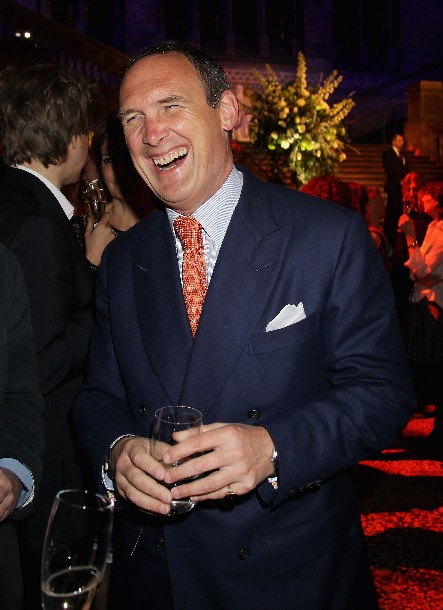AA Gill. You’d be laughing too, if you got paid as much as he does for calling people names. Image: Chris Jackson/Getty Images.
The egalitarian internet. That most open of spaces where comment is not only free, it’s rapidly becoming a bigger talking point than the original prose it responds to.
Virtually every newspaper, online magazine and blog offers an option for the reader to respond to a piece of work. In an ideal world, this would encourage people to use their knowledge and/or experience to contribute to the wider point – resulting in a more rounded, informative experience for both the writer and the readers.
But then, in an ideal world, 25% of internet searches wouldn’t be about porn. The truth is that comments sections, in the main, contribute little to the wider point and tend toward providing space for people who aren’t prepared to put in the effort themselves picking holes in other people’s opinions or work.
Helen Lewis’ recent New Statesman piece deconstructed the wisdom and worth of comments sections in general, and received a number of responses espousing the ‘right’ of individuals to voice their opinion. Unfortunately, as a brief glance at these comments helpfully (if unknowingly) articulate, while many people have something worthy to contribute, their voices are lost in the cacophony of name calling and personal insults.
The trouble is, it’s only possible to defend this point when journalists and writers who do get paid to voice their opinion to the masses are respectful enough of their audience to do so appropriately. When a noted writer has to resort to pathetic name calling, insults and constant reference to generic stereotyping to attract readers, it is essential that those readers have the right to assert their objection.
Take AA Gill. Known as for his work as restaurant and TV critic for the Sunday Times and regular contributions to Vanity Fair, one would imagine that his writing is a cut above the general prose knocked out by bloggers and ill-informed jibing of commenters.
Not so. His review of BBC2 documentary ‘Meet the Romans’ last week focused not on the programme content but the appearance of presenter and Cambridge University classicist Professer Mary Beard, who is described thusly:
“For someone who looks this closely at the past, it is strange she hasn’t had a closer look at herself before stepping in front of a camera.
“Beard coos over corpses’ teeth without apparently noticing she is wearing them.
“From behind she is 16; from the front 60. The hair is a disaster, the outfit an embarrassment.
“This isn’t sexist or beside the point. If you’re going to invite yourself into the front rooms of the living, then you need to make an effort.”
This, remember, is just a couple of years after he watched Clare Balding’s TV show, Britain By Bike, and in his review referred to the popular, openly gay presenter as a ‘dyke on a bike‘.
As long as this kind of writing is considered acceptable for publication in the mainstream, commenters aren’t just an irritation to be borne, but an essential part of the dialogue necessary to drive the inarticulate and pointless from the papers.
Next time some idiot trolls you about your work, remember that. Then double check it isn’t Adrian Anthony Gill.
He’s obviously got an awful lot of time on his hands.
